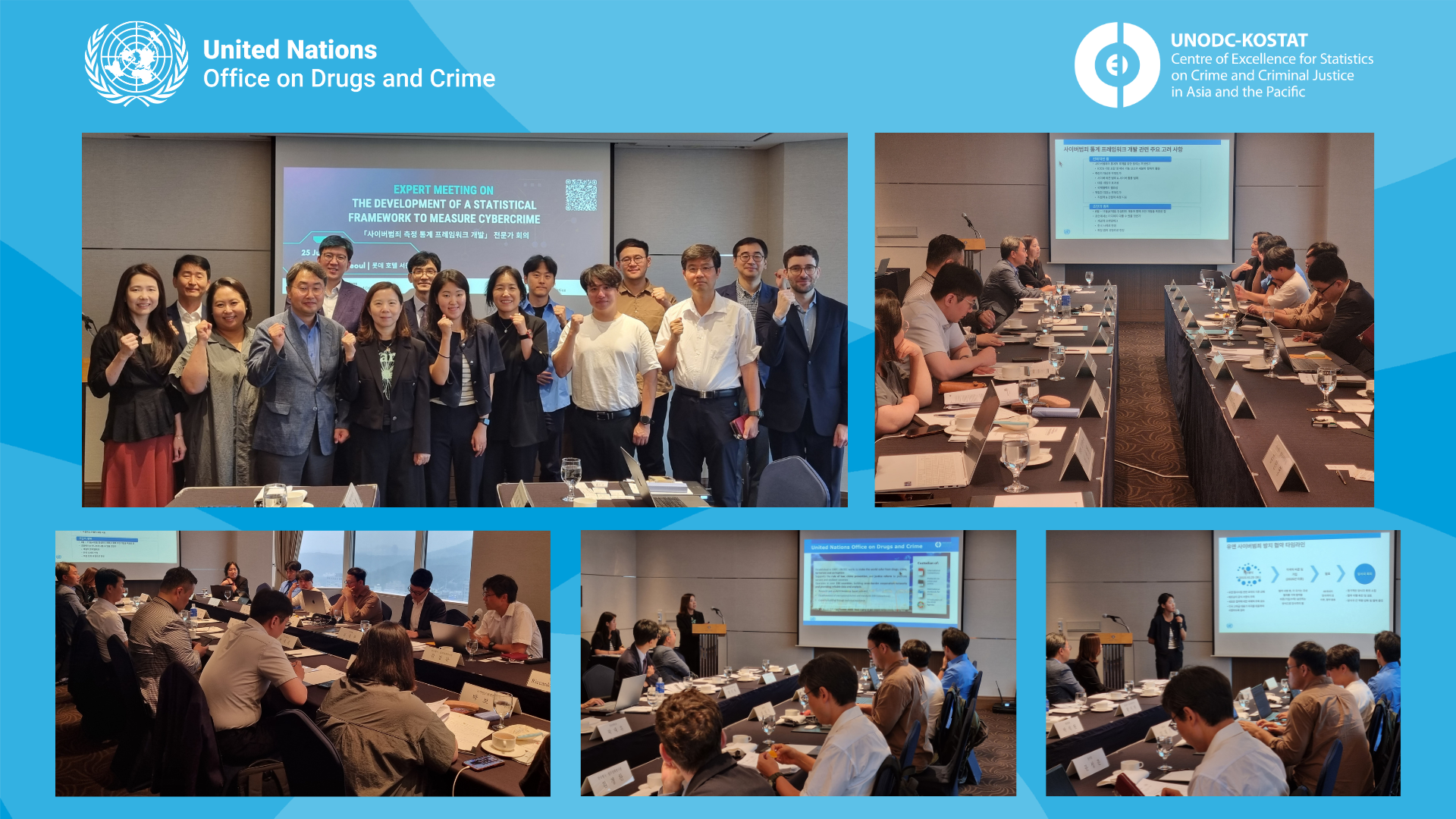
Seoul, Republic of Korea, 25 June 2025 – In response to the growing global threat of cybercrime, the United Nations General Assembly adopted the United Nations Convention against Cybercrime in December 2024. To support its implementation, the United Nations Office on Drugs and Crime (UNODC) has planned an initiative to develop a statistical framework to measure cybercrime, as part of its broader mandate to improve the availability and comparability of crime and criminal justice data.
As part of this initiative, the UNODC-KOSTAT Centre of Excellence (CoE), in partnership with the Korean Institute of Criminology and Justice (KICJ), organized a national expert meeting in Seoul on 25 June 2025. The meeting brought together experts from government, academia, and the private sector to assess the current state of cybercrime data collection in the Republic of Korea and to exchange views on the development of the statistical framework. Participants included representatives from the Korean National Police Agency, the Supreme Prosecutors’ Office, Statistics Korea, research institutions, academia, and major private sector entities such as Toss Bank, Coupang, and S2W.
The meeting was opened by Jonghee Choi, Coordinator of the CoE, who welcomed participants and emphasized the seriousness of cybercrime, the importance of data-driven responses, and the role of expert input. Following this, Jiae Park, Statistical Officer of the CoE, introduced the objectives of the framework initiative and provided an overview of UNODC’s work in developing statistical frameworks, drawing on previous examples such as femicide and corruption to support participants’ understanding and stimulate discussion.
Government representatives shared their institutional perspectives on cybercrime measurement. KICJ presented its ongoing research and future plans related to cybercrime data collection, sharing insights into the nature of emerging threats and the challenges of capturing them through existing statistical tools. The Korean National Police Agency introduced its current classification framework for cybercrime and explained the reasoning behind its structure. From the private sector, representatives from Toss Bank, Coupang, and S2W discussed how their organizations detect and respond to cybercrime incidents, and how they cooperate with relevant public agencies. They outlined how they engage with government authorities and shared thoughts on limitations in current reporting practices and suggestions for improvement.
Drawing on international experience, Professor Kang Wook of the Korean National Police University presented an overview of cybercrime definitions and measurement practices in countries such as the United States, Japan, and members of the European Union. His presentation highlighted key challenges—such as definitional inconsistencies, fragmented data systems, and the fast-evolving nature of cyber threats.
The discussion that followed explored key issues such as priority cybercrime types, ways to incorporate private sector data, and the importance of setting a clear statistical definition aligned with the framework’s purpose. Participants also discussed currently measurable indicators as well as those that should be included, and shared views on key considerations for the development of the statistical framework. The meeting provided a space for open, cross-sectoral dialogue, where experts from various institutions shared their knowledge and perspectives to shape a practical and meaningful framework.
Based on the insights shared during the meeting, the CoE will work to set an appropriate direction for the development of the cybercrime statistical framework and will continue to gather input from national and international experts. These efforts aim to ensure the creation of a practical, adaptable, and internationally aligned framework that supports more effective responses to cybercrime.
Further information on the CoE can be found here, X @CoE_UNODC and Facebook @UNODC.KOSTAT.CoE.